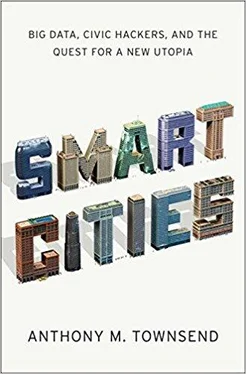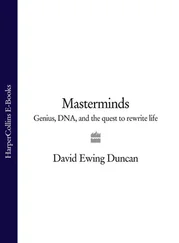Plan for life cycles—it’s just as important to clear out old technology when you bring in the new. Cities that cling doggedly to a single technology are destined to become obsolete when the next shift occurs. What has made Alexander’s patterns so persistent is their ability to evolve as foundations for new technologies and human activities.
Roll Your Own Network
A century ago, cities all over the world realized that universal access to electric power meant taking over the business themselves. Power companies had cherry-picked the best customers and most profitable districts, depriving marginal and outlying areas of the benefits of network access. Today, many cities are realizing that similar economics apply to broadband. Throughout Europe, cities such as Stockholm, Amsterdam, Cologne, and Milan have invested in public broadband infrastructure, dramatically increasing speeds and lowering costs to residents and businesses.
But, as we saw in chapter 7, state governments in America prohibit communities from building their own public broadband networks. Back in 2005, when Philadelphia was fighting for its wireless future in the Pennsylvania state legislature, US Federal Trade Commission member Jon Leibowitz told a gathering of city officials that “local governments have long been laboratories of experimentation. If they want to give their residents affordable Internet access, they should be allowed to try without being foreclosed by federal or state laws—or by cable and telephone interests.”6 Because of the restrictions enacted during that era, only about 150 communities in the United States have built public fiber-optic networks, far shy of the some 3,300 municipalities that are in the electric power business.
But early movers like Chattanooga, Tennessee, which authorized its municipal power company to expand into telecommunications in 2008, show how productive an investment fiber is. The city is saving on telecommunications charges, the power authority has dramatically reduced outages through deployment of smart power- grid technologies that connect through the fiber network, and businesses have seen dramatic price drops in ultra-high-speed Internet service. Claris Networks, a local cloud services firm based in nearby Knoxville, moved jobs to Chattanooga, where its connectivity costs dropped by 90 percent.
The telecommunications industry’s arguments against public broadband utilities ring hollow. They vilify broadband as a financial quagmire for cities, yet by 2009 municipal fiber networks on average captured over half the market within just a few years, well above the 30 to 40 percent needed to break even. Some were projected to pay off their construction bonds early, and not a single one had failed.9 Even the pro-market Organisation for Economic Co-operation and Development (OECD), the club of developed nations, endorses the approach, arguing that “Municipal networks can play an important role in enhancing competition in fibre networks.”10
Community-owned broadband is one of the best investments a smart city can make. It creates a vital infrastructure for information-intensive industries, and it opens the door to new opportunities for human and social development through remote learning and immersive multimedia communications. More importantly, it puts the city in control of its own nervous system, giving it tremendous bargaining power over any private company that wants to sell smart services to the city government or its businesses and residents. By putting control over many aspects of management under local jurisdiction, community-owned networks also render moot the struggle over two important telecommunications policy issues—net neutrality, which seeks to prevent ISPs from restricting user access to content and applications, and making Internet access a human right, in accordance with a 2012 United Nations declaration. Cities could simply decree their broadband networks open and free, to both content providers and citizens without the financial wherewithal to pay for a broadband connection.
Public-private partnerships like the one that Philadelphia struck with EarthLink are too beholden to short-term market forces to work over the long haul. But many creative mechanisms for funding these networks are in the works. Municipal bonds, like a residential mortgage, allow the time horizon for return on investment to be stretched to match the useful working lifetime of the infrastructure. Through the Gig.U partnership, universities across the United States are stepping up to extend campus networks into surrounding communities. The town of Sandy, Oregon, requires real estate developers to extend the city’s public fiber grid into new developments on virgin land, under the same subdivision regulations that now require them to build roads, sewers, and water mains.11 Some communities are beginning to experiment with crowdfunding local broadband projects.
In the poorest parts of the world, more than just local fiber networks are needed—the entire cloud infrastructure that rich nations enjoy needs to be created from scratch—as we saw in Moldova (chapter 6) where a World Bank grant helped create a “g-cloud” that powers the national government’s online services and internal information systems. By underwriting a large portion of the cost of a nationwide cloud infrastructure, the g-cloud will reduce the cost and expand the quality of computing services for local businesses. In lieu of grants, poor nations can justify such investments by creating shared infrastructure underwritten by military, law enforcement, and emergency-response users.
Build a Web, Not an Operating System
In the race to prescribe how the various pieces of smart cities will talk to each, there is a growing buzz about the need for an “urban operating system.” Living PlanIT, the London-based software company that’s building a research park for smart-city technology in the hills outside the city of Porto in Portugal, even claims a trademark on the term.
For personal computers and mobile devices, the operating system is an essential suite of software that does the heavy lifting of routine, common functions like opening and closing windows on a screen, reading keyboard input, writing to the disk—so that every new program doesn’t have to reinvent the wheel. An urban operating system would handle tasks like processing your payment for a taxi fare, trafficking road sensor readings up to a server in the cloud, or verifying a residents’ identity when they approach the door of their home. As bits of the smart city interact with each other, the urban operating system will broker the exchange.
For engineers, the benefits of urban operating systems are clear—faster and cheaper application development. But for business strategists, a single operating system for the city has only one purpose—to make the entity that designs it indispensable. Whoever owns this layer of proprietary protocols and infrastructure will truly hold the keys to the city. As one of Living PlanlT’s executives has said publicly, the “urban operating system will control everything that happens in the city.” But the precedent of companies exploiting dominance in personal-computer operating systems should sound alarm bells in City Hall. Already, Living PlanIT is more focused on creating cozy relationships with technology companies whose products will plug into its operating system. Its relationship with Cisco and McLaren, a sensor manufacturer, looks like the notorious Microsoft-Intel alliance, the “Wintel” duopoly that dominated desktop computing for decades. And for years, Microsoft exploited undocumented features in the Windows code base to make its highly profitable Office software work better than competing rivals. Smart-city monopolists will design similar backdoors for their own profit.
The obvious alternative to an urban operating system is the Web and an organically evolved set of open standards and software that anyone can build on. Andrew Comer, a partner at engineering giant Buro Happold, argues, “In an ideal world, we would have common, open-source platforms that can accommodate all of these systems, and manage the transfer of information between them all. It would be more democratic, create more opportunity for competition, and make it easier for new players to bring new products to market.”13
Читать дальше












